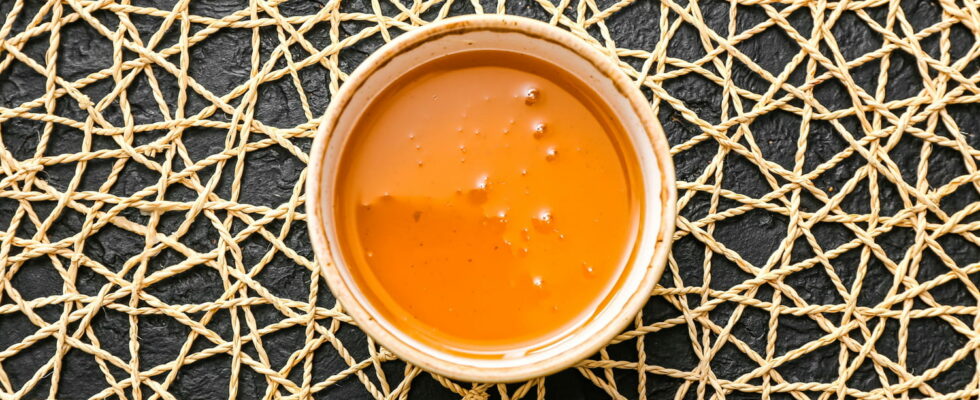While most foodstuffs perish after a few days, there is a natural food that resists time perfectly, without losing any of its taste and nutritional qualities even after several centuries.
Honey is one of the oldest foods consumed by man, with its use dating back to ancient Egypt. In addition to being used in many dishes, it is highly appreciated for its antibacterial, antioxidant and anti-inflammatory properties. You probably have some at home, perhaps hidden in the back of your kitchen cupboard, lying around for a while. Besides, you don’t know since when. So how long does honey last?
Honey has many pretty incredible properties. It has been used and studied for a long time for its medicinal properties, but also for its conservation properties. Herodotus reports that the Babylonians buried their dead in honey, and Alexander the Great was said to have been embalmed in a coffin filled with honey. The oldest honey was discovered in 2012 by Georgian archaeologists and dates back to… 5,500 years BC And it was still edible…
How is this done? Even though at the time, there were no preservatives or additives to extend its shelf life, as one might suspect with honey produced by manufacturers today.
One of the keys to this longevity lies in the composition of honey itself. Its low water content – only 18% – combined with a high concentration of sugars – the mile is composed of up to 80% natural sugars, including fructose, glucose and sucrose – creates an environment hostile to the development of microorganisms. Additionally, honey is naturally acidic, which inhibits bacterial growth. This is because bees add an enzyme called glucose oxidase when making honey, which produces hydrogen peroxide with antibacterial properties.
These characteristics make honey a virtually imperishable food when stored under appropriate conditions. However, it is essential to note that although honey does not expire, it can undergo transformations over time, such as crystallization or a change in color. These modifications in no way alter its nutritional or taste qualities.
To ensure that honey truly remains unchanged over a long period of time, it is strongly recommended to store it in a place at room temperature and away from humidity. So don’t hesitate to stock up!
